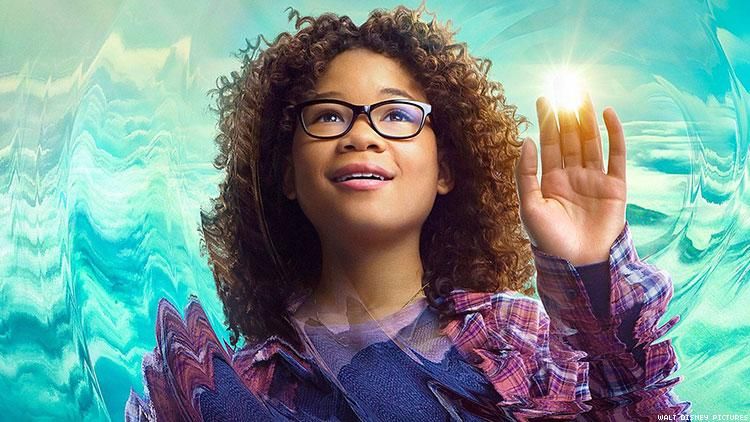Adaptations come in all qualities. Some are blamed for adhering too closely to their source material, some for veering too far. Fortunately, A Wrinkle in Time had neither of these problems. Unfortunately, it was also not an entertaining or even comprehensible movie. It attempts rousing and achieves mild curiosity.

The character who must suffer through the brunt of the inspirational speeches is Meg (Storm Reid). Her father, a supposed scientist, disappeared four years ago, leaving Meg adrift in a sea of mean girls. The situation is portrayed so unrealistically though, that it is difficult to summon too much sympathy. No character seems to exhibit recognizable, human behavior. Meg’s classmates are cartoon bullies that have only ever existed in movies. Her brother, Charles Wallace (Deric McCabe), is a precocious, all-knowing genius. When Meg’s classmate, Calvin (Levi Miller), joins the adventure, his sudden interest is swept away in a single line. This lack of any explanation occurs regularly, but never ceases to be frustrating. It is not just that the movie fails to explain its more obscure science fiction elements. These can be difficult to articulate even for more sophisticated films. Perhaps I do not need to know exactly how one travels through time and space. But the film also fails at the most basic levels: character and plot. The characters could be interesting, but the plot whisks them from point to point without any pause for development. Most of the time, Meg is not given enough information to grant her agency. It is hard to cheer for Mrs. Which (Oprah) when she urges Meg to be a warrior when we barely know what Meg is fighting against or how she can fight. Instead, the antagonist is ambiguously named ‘It’ and given no backstory. If that sounds familiar, it is because I am running out of ways to describe my frustration with this film. For a movie with a budget of 103 million dollars, there simply isn’t much there.
Perhaps more interesting is the conversation around the movie and what it represents. You cannot separate A Wrinkle in Time from the fact that it features a young black woman, directed by a black woman. The film is inherently empowering simply by existing. The context, thus, becomes inextricably tied to the film’s message. Ava DuVernay sets out to create a film as unique, as legitimizing of black womanhood. She doesn’t quite succeed. She is hampered by her own goal and overreaches. But it is history, itself, that forcers DuVernay’s hand. There has never been a movie like A Wrinkle in Time. Blockbuster movies with budgets over 100 million dollars are not handed over to black women. Until now. DuVernay stuffs her movie full of platitudes, but it is her chance to reach out to those young girls in the audience, her chance to influence the narrative. If the movie veers too much toward the falsely inspirational, it is because it tries to distill hundreds of years of self-care and female empowerment into two hours. Hopefully, we won’t have to wait another hundred for the next leap forward.



